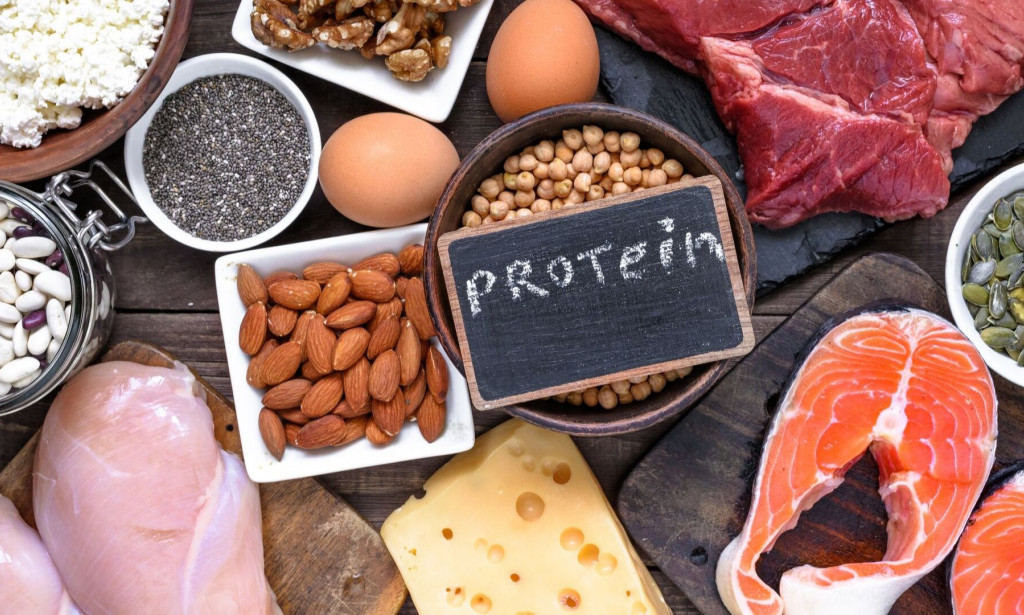Protein is an essential macronutrient that is crucial in maintaining a healthy body. It is responsible for the growth and repair of tissues, the production of enzymes and hormones, and the maintenance of a strong immune system. Protein is a critical component of a healthy diet, and it is necessary to ensure you consume enough protein daily. In this blog, we will explore the importance of protein in a healthy diet and the health benefits of protein for the human body.
What does Protein do for The Human Body?
Here are a few incredible health benefits of proteins for the human body.
· Protein Helps Build and Repair Tissues: Protein is essential for building and repairing tissues in the body. The human body is constantly breaking down and rebuilding tissues, and protein is critical in this process. It is particularly important for muscle tissue, which experiences a lot of wear and tear from physical activity. Protein is also necessary to grow and repair bones, skin, and organs.
· Protein Helps Maintain a Healthy Weight: Protein is an important nutrient for weight management. It helps to increase feelings of fullness and reduce cravings for unhealthy snacks. When you consume protein, your body burns more calories during digestion than when you consume carbohydrates or fats. It means that protein can help boost your metabolism and assist with weight loss.
· Protein Helps Regulate Blood Sugar Levels: Protein is an important nutrient for regulating blood sugar levels. When you consume protein, it slows down the absorption of carbohydrates in the bloodstream. It can help prevent spikes in blood sugar levels, leading to insulin resistance and type 2 diabetes.
· Protein Helps Support a Strong Immune System: Protein is necessary to produce antibodies, which help the body fight infections and diseases. Consuming enough protein each day can help to ensure that your immune system is functioning correctly, which can help to protect you against illness and disease.
Protein Helps Promote Healthy Aging
As we age, our bodies require more protein to maintain muscle mass and strength. Consuming enough protein can help to slow down the natural muscle loss that occurs with aging. It can help to prevent falls and maintain independence in older adults.
Many natural sources of protein can be included in a healthy diet. Some examples of foods that are high in protein include:
· Meat and Poultry: Beef, chicken, turkey, pork, and lamb are all excellent sources of protein.
· Fish and Seafood: Salmon, tuna, sardines, and other types of fish are high in protein and omega-3 fatty acids.
· Eggs: Eggs are a convenient and affordable source of protein. One large egg contains about 6 grams of protein.
· Dairy Products: Milk, cheese, and yogurt are all good sources of protein, as well as calcium and other important nutrients.
· Legumes: Beans, lentils, chickpeas, and other legumes are an excellent source of plant-based protein.
· Nuts and Seeds: Almonds, peanuts, chia seeds, and flax seeds are all high in protein and healthy fats.
· Whole Grains: Quinoa, brown rice, and oats are all good sources of protein, as well as fiber and other nutrients.
It's important to note that different protein sources provide varying amounts and types of amino acids, which are the building blocks of protein. Therefore, it's essential to consume a variety of protein sources to ensure that you get all the essential amino acids your body needs.
The Way Forward
In conclusion, protein is an essential macronutrient that is critical in maintaining a healthy body. It is necessary to build and repair tissues, maintain a healthy weight, regulate blood sugar levels, support a strong immune system, and promote healthy aging. If you are looking to improve your diet, it is essential to ensure that you are consuming enough protein each day. Some good protein sources include lean meats, poultry, fish, eggs, dairy products, legumes, nuts, and seeds.



You must be logged in to post a comment.